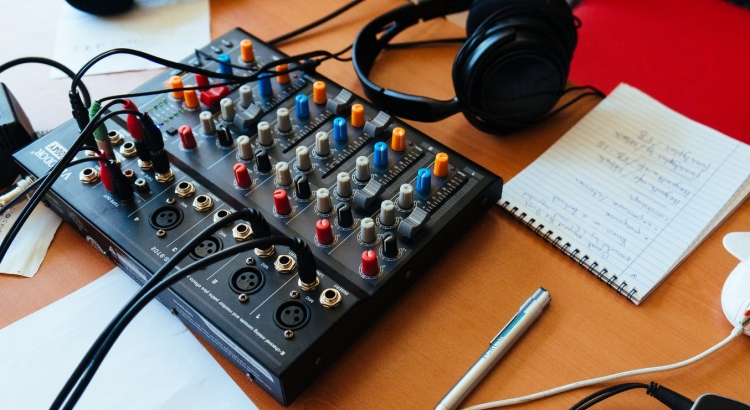What Is Podcast Transcription?
Podcast transcription refers to converting the spoken words in a podcast episode into written text. While podcasts are similar to radio talk shows, they reach audiences through digital devices like smartphones, tablets, and computers. Transcribing podcasts helps make the content accessible in text form.
Podcast topics span entertainment, music, business, healthcare, politics, social media, and more. Shows appear in various formats, including:
- Solo host podcasts
- Interview-based shows
- Panel discussions
- Fiction and nonfiction storytelling
- Repurposed radio or live content
Key Benefits of Podcast Transcripts
Podcast transcripts offer wide-ranging advantages for creators and listeners. Below are the primary benefits:
1. Accessible to a Wider Audience
- Listeners with hearing impairments can access podcast content in text.
- International audiences benefit from translated transcripts, expanding reach beyond language barriers.
- According to the World Health Organization, over 5% of the world’s population (approx. 430 million people) have disabling hearing loss (2023).
2. Improved Content Discovery and SEO
- Search engines index podcast transcripts, enabling more people to discover shows through search (BrightEdge, 2022).
- Important keywords from podcast discussions appear in search results, increasing organic traffic.
3. Repurposing Content
- Content creators can transform transcripts into blog posts, articles, or social media updates.
- Useful for highlighting important advice, testimonials, or quotes from guests.
- For example, an interview on healthy living can be repurposed to create a new post on nutrition tips.
4. Easier Research and Reference
- Researchers and academics can cite transcripts for case studies or publications.
- Text format allows readers to scan and locate key sections quickly, saving time.
5. Inclusive Learning Environment
- Accessible to visually impaired individuals using screen readers.
- Offers alternative ways for users to consume and interact with content.
- Supports diverse learning styles, from audio to visual.
Methods for Podcast Transcription
Converting podcast audio into text can be straightforward or complex, depending on the method you select. Below are the most common approaches:
1. Manual Transcription (DIY)
- Involves listening to podcast audio and typing out each word.
- Requires a computer, quality headphones, reliable internet, and strong typing skills.
- Typically, transcribing one minute of audio takes about 10 minutes—so a 3-minute clip might require 30 minutes or more (Transcription Certification Institute, 2021).
- Works best when you have clear audio and no heavy accents.
- Time-consuming and can lead to errors if not carefully proofread.
DIY transcription might suit those on a tight budget or working with short audio clips, but larger projects can become overwhelming.
2. Automated Transcription Software
- Uses artificial intelligence to transcribe podcasts quickly and affordably.
- Requires clear audio without much background noise or strong accents.
- Best suited for straightforward podcasts with few speakers.
- Transcripts may need editing to fix errors or misheard words.
If you need quick results, automated tools, like automated transcription services, can deliver transcripts rapidly. However, human review is important for accuracy, especially if you plan to publish the transcript.
3. Professional Transcription Services
- Combine skilled transcribers and editors to ensure a high level of accuracy.
- Handle complex audio, overlapping speakers, and industry jargon.
- Offer additional services like timestamps, captions, and translations.
- Save significant time and effort compared to manual or automated transcription methods.
- Trusted by a variety of industries for quality assurance.
Services like GoTranscript's transcription services are a reliable solution for businesses, researchers, and podcasters who want error-free transcripts quickly.
Enhancing Podcast Accessibility and Engagement
Translation and Multilingual Formats
- Transcripts can be translated into various languages using text translation services or audio translation services.
- Expands podcast appeal and global audience reach.
Closed Captions and Subtitling
- Options for creating closed captions for video podcasts or YouTube uploads.
- Subtitling helps reach non-native speakers and users watching without sound—53% of viewers watch video content on mute (Verizon Media, 2019).
Proofreading and Enhanced Quality
- Seeking transcription proofreading ensures the highest standard for published transcripts.
Flexible Pricing Models
- Different options exist for various budgets, from affordable transcription prices to low-cost captioning services.
How to Get Started with Podcast Transcription
- Gather your audio files and ensure audio clarity for better results.
- Decide between manual, automated, or professional services based on your timeline and needs.
- Order transcription easily online. For example, you can order podcast transcription or order captions through trusted platforms.
Conclusion: Make Your Podcast More Accessible with GoTranscript
Podcast transcription opens new opportunities to expand your audience, improve search visibility, and repurpose valuable audio content. Whether you want DIY options, leverage AI for speed, or require expert handling, these solutions help make your content inclusive and impactful.
GoTranscript delivers professional transcription, automated transcription, captioning, subtitling, and translation solutions to meet all your podcasting needs. Choose GoTranscript for fast, accurate, and affordable transcription services every time.



















 Verified Order
Verified Order